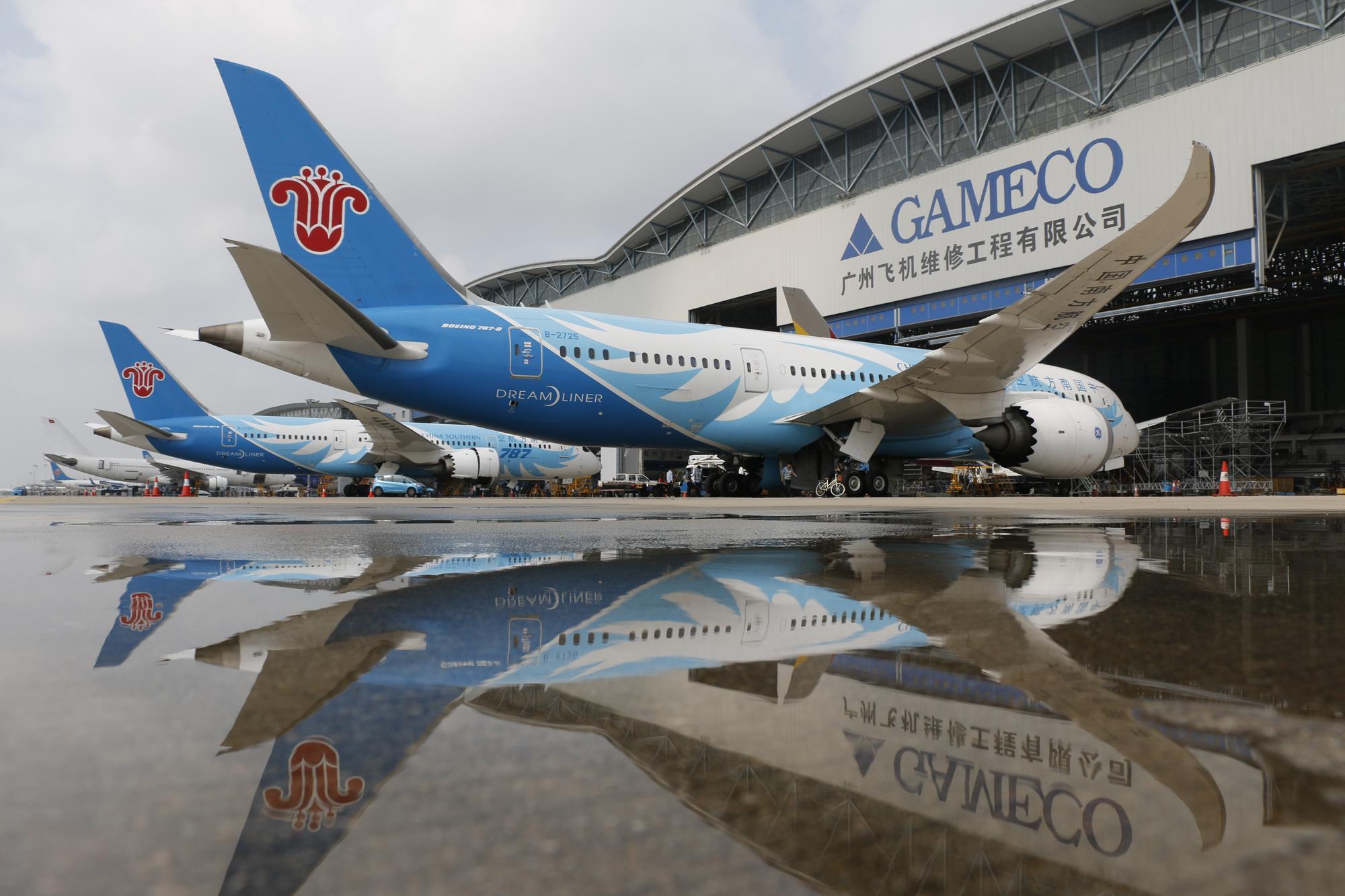
Gameco
After announcing plans to spend around $85 million on two new facilities at its Guangzhou base, Gameco also plans to roll out several new digitally driven initiatives. The MRO has spent the past few years initiating its Smart MRO project with a series of rollouts including mobile the installation of a mobile route maintenance management system, electronic signature of work card and the application of RFID technology in aviation materials and tool equipment management, to name a few. Underpinning this is a 5G internet network, which has equipped its facilities since 2019. Long-term, it plans to build an Internet of things infrastructure by using RFID, digital monitoring technology, further realize the digitization of tools, aviation materials and equipment and obtain its tracking and status data in real time.China’s domestic flights rebounded to about 8,000 per day over the weekend of July 4, up from about 2,000 per day at the depth of the virus cutbacks, but still short of the nearly 11,000 daily flights before the crisis, according to RadarBox.
For China’s international flights, the rebound was much more limited, about 1,000 per day on July 4, mostly cargo, versus 700 at the peak of the crisis and about 3,000 before the crisis.
For Guangzhou-based Gameco, that has meant reasonably busy heavy maintenance lines, though not as busy as before. “Gameco operates normally 20 heavy lines, and we lost work for about two to three lines,” explains CEO and general manager Norbert Marx. “The main reason is that our international customers cannot deliver and pick up aircraft as scheduled, because they cannot enter China due to travel restrictions.”
Marx says heavy maintenance for his domestic customers so far is close to normal, partly because of the flight recovery and partly because China Southern Airlines has brought forward some work on its grounded aircraft.
Line maintenance, on the other hand, is not yet back to normal. In China, international passenger flights are regulated to one per week, per country. For example, China Southern can operate only one weekly flight to the U.S. at Los Angeles, instead of daily flights to New York City, San Francisco, Los Angeles and other destinations. “The situation is similar in Europe, Australia and other international destinations,” Marx says.
This not only reduces maintenance demand for the widebodies that fly international routes. Domestic flights that feed into international flights are also reduced, further decreasing maintenance demand. And in May flights in and out Beijing were reduced greatly, “after some new corona cases were reported on a Beijing market.” Marx says.
As of now, The Gameco chief does not expect things to fully return to normal, that is, 2019 levels of traffic, flights and maintenance demand, until 20022.
Despite the reduced workload Gameco has managed to keep all its staff onboard. “This is a big boost for morale and company culture,” Marx stresses. “It brings stability to the team, and they can focus on the job.” Of course the variable portion of everybody’s monthly pay is reduced temporarily, until business picks up again.
Gameco has not offered any aircraft parking services during the slump. It reserves its available parking space to attract lease return business, in case the next operator is not clear or in case a customer cannot pick up its aircraft promptly.
Marx says logistics has been a challenge, due to transportation problems, reduced flights, fewer transportation options, regulations in lockdown areas and changing alert levels. “Also, subcontracting of special services like plating of parts or calibration of tools can be a problem, if the capability is not available in-house. Fortunately Gameco can perform most processes in-house.”
The MRO did not obtain any direct financial assistance from the Chinese government, but did get some indirect support, for example, help with visa applications from foreign customer reps and temporary reductions in welfare expenses.
In any case, Gameco has proceeded with its strategic projects, mainly the construction of a phase-3 hangar facility of a million square feet, a component business center of 420,000 square feet and a composite repair center of 180,000 square feet. But it has postponed non-strategic investments and some new hires.
And like several other leading shops, Gameco has accelerated development of remote processes for quality inspections and engineering support with augmented reality equipment.
In 2019, it had entered into a cooperation project with China Telecom for development of 5G applications in MRO, and Gameco hangars now have 5G infrastructure.





